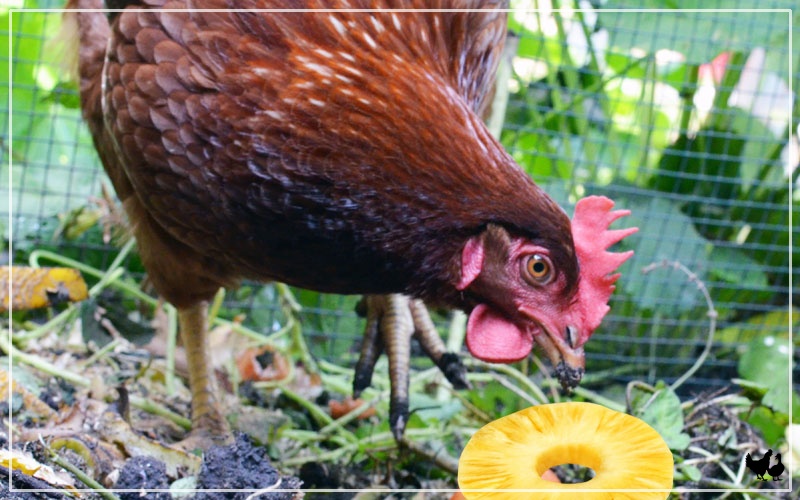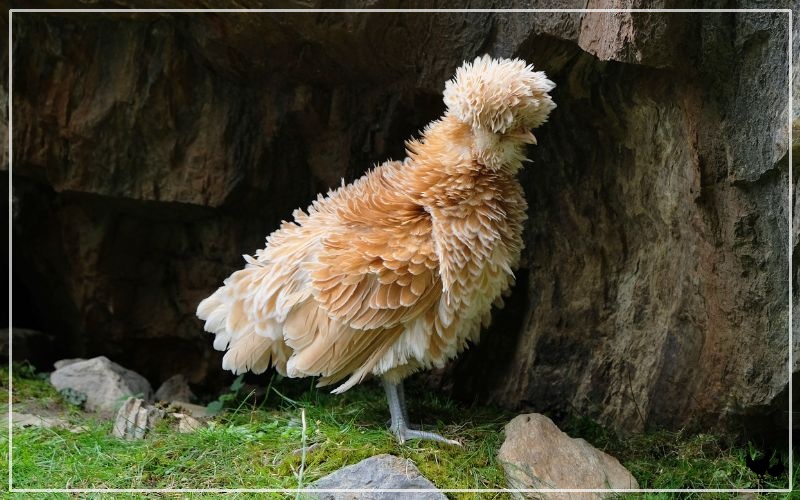Do Chickens Like Snow? 5 Things to Consider
Chickens don’t like snow. The snow and cold make chickens freeze in the winter and halt egg production. Free-range chickens have a problem foraging outdoors when temperatures are below 20 °F. Snow makes it difficult or sometimes impossible for chickens to walk outdoors.

Can Chickens Go Out When Snowing?
It is not wise for chickens to go out when there is snow. Free-range chickens can’t go outside in winter since the cold can kill them or make their bodies freeze. Snow also halts your hens’ egg-laying cycle. Don’t let your chickens outdoors when it is snowing.
Please keep them in their coop and feed them with energy-rich foods such as cornmeal to provide enough heat to your flock in winter when it is snowing.
Can Chickens Walk in Snow?
No, chickens can’t walk in snow. Chickens will slide each time they try walking in the snow. Free-range chickens have problems walking in snow since they always slide while walking in the snow. Snow isn’t the best thing for chickens.
Keeping your chickens outside in snow can bring lots of problems since the chickens will be at a high chance of dying. Furthermore, chickens don’t have somewhere to forage when snowing since snow covers everything on the ground. Even the tiny insects that chickens forage on will not be available in snow. Cold kills all the insects on the ground.
Can Chickens Eat Snow instead of Water?
Wild birds eat snow in winter to hydrate their bodies. Chickens will also eat snow in winter since there is no water source. Free-range chickens usually like pecking at snow in winter, even when there is water around. Chickens can hence eat snow in winter, especially free-range chickens. Your chickens will still eat snow in winter instead of drinking water.
How Long Can Chickens Stay Outside in Winter?
Chickens can withstand cold weather because of their feathers. These birds can’t, however, stay out in winter for several hours. Chickens can stay outside in winter as long the temperature is not below 32 degrees Fahrenheit.
This is the freezing temperature for most chicken breeds, and chickens will die in two hours if they remain outside when the temperature is below 32 degrees Fahrenheit. Please don’t keep your chickens outside in the snow for over an hour since they risk dying. Egg-laying hens shouldn’t go out in winter since the cold can make them freeze.
How to Keep Chickens Happy in Winter?
As winter sets in, finding ways to keep your chickens happy amidst the harsh elements can be pretty hard. Chicken owners with smaller flocks have a challenge keeping their birds happy in winter. Check these tips on how to keep your flock happy in winter despite the cold temperatures that make chickens unhappy.
– Insulate the Coop
Wind chill makes your chicken coop lose heat in winter. It helps to seal all air leaks to prevent heat loss in your coop. Check for gaps on your coop if it is new. Look for any gaps in your new coop.
If your chicken coop is too old, it means it has several air leaks that can let in the cold in winter, making your chickens freeze. Freezing chickens are unhappy chickens. They also lay fewer eggs due to the cold.
The easiest way to reduce heat loss in your chicken coop during winter is by minimizing drafts. You can install plywood inside the coop to reduce the draft and retain the heat inside the coop. Make sure the ventilation in the chicken coop is working properly to prevent the temperatures in the chicken coop from dropping pretty quickly.
– Reduce Airflow
Although your chicken coop shouldn’t have large holes, it still needs some holes to let in air. Avoid reducing airflow in the coop too much. Reducing airflow can subject your chickens to health problems such as pneumonia. Have a ventilation system to avoid an instance where your chickens will succumb to pneumonia due to poor airflow in the coop.
Have vents in the coop as the first measure to keep the coop ventilated. With vents, cold won’t flow directly onto your chickens. Vent out the moist air and replace it with drier air to prevent mold from growing inside the coop in winter. Your chickens won’t be happy if there is mold growth in the coop since mold will expose them to health problems during winter.
Your mesh vent should have a hatch that you can easily open and close. Having a mesh vent will make it easier to ventilate your chicken coop during the day. You will also have an easier time closing the coop in the evening once cold sets in. A mesh vent will also prevent heavy rains from entering the chicken coop.
– Use Deep Bedding
Using the deep litter method can be an effective way of managing litter in your chicken coop. Furthermore, this method can help insulate your chickens against heat loss during winter, keeping your flock warm and happy.
The deeper litter isn’t a complicated process. Start the process by putting wood shavings in your chicken coop. You can put any organic matter in the chicken coop. Stir up the chicken waste with a rake instead of disposing of the chicken waste.
Allow your chickens to stir up the waste, keeping them happy as they stir up their waste. Chickens love scratching on things, including their waste.
– Heat the Coop
Days are shorter, especially in winter. Chicken keepers can utilize sunlight for retaining heat in their chicken coop during the day, keeping their coops warmer for many hours. Using insulation windows can help trap sunlight, keeping your flock warm and happy in winter.
Install a material that absorbs sunheat in the coop. The heat-absorbent material will help keep the chickens warm and happy.
Conclusion
Chickens don’t like snow. They prefer remaining indoors in winter to avoid cold. Don’t let your chickens out in snow since the cold will do more damage to your birds. Please make sure the chickens don’t come into contact with snow in winter, lest they fall sick or fail to lay eggs as usual.



